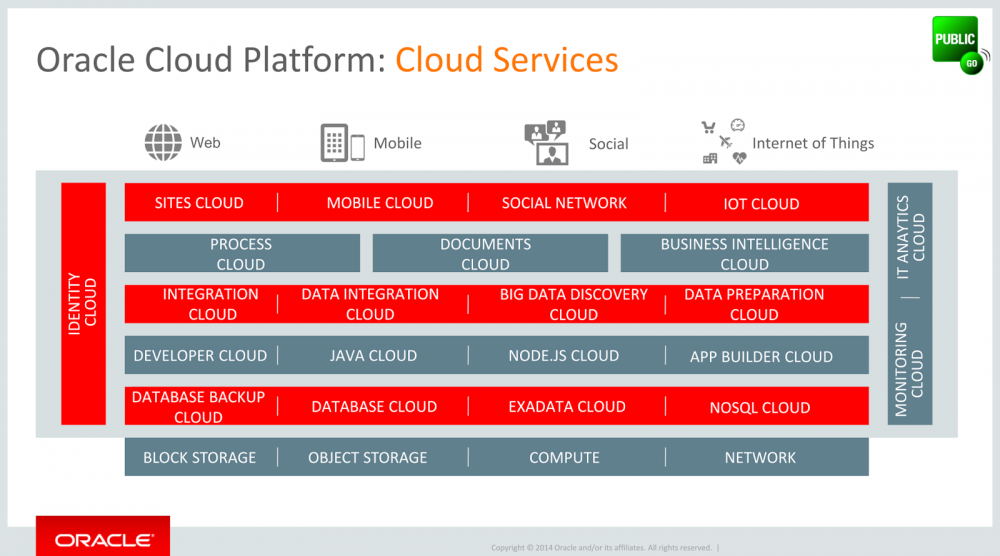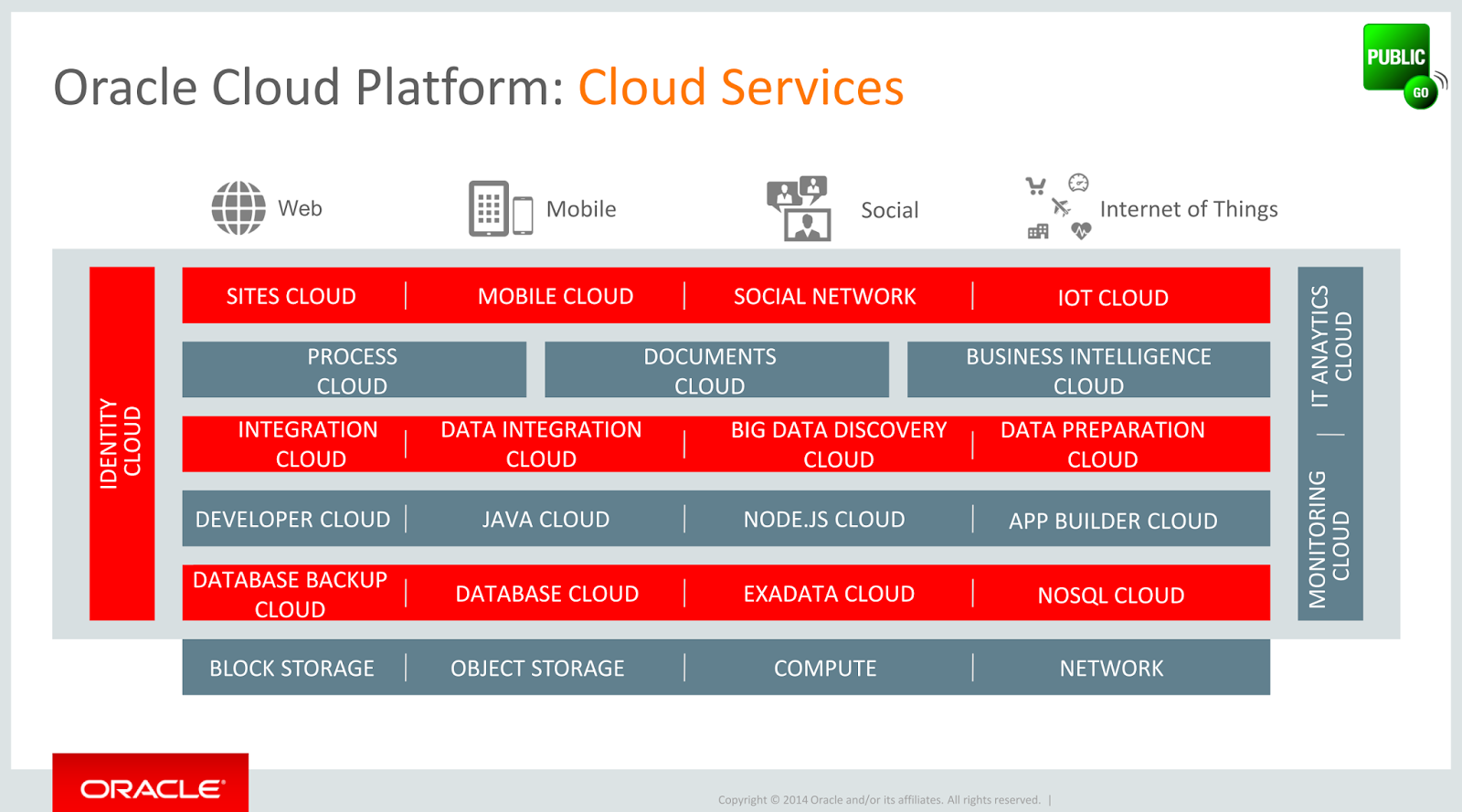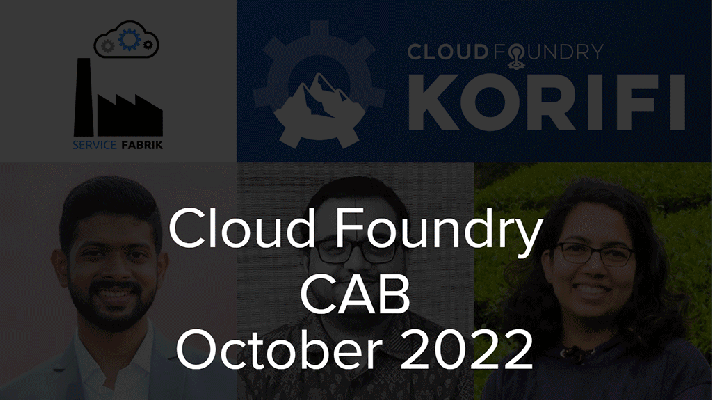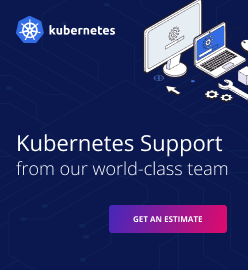Oracle Says Cloud Computing Is Simple

A new cloud roadmap
Recently, the world of cloud computing witnessed a tour de force by Oracle, which invited analysts and reporters in to observe its very aggressive rollout of what the company’s leaders believe to be a comprehensive cloud-computing strategy.
Led by company’s EVP —a former TIBCO executive who joined Oracle in 2014—an Oracle Cloud strategy was laid out that describes applications, the platform, and the infrastructure.
The app strategy describes Oracle’s tack to move to subscriptions. The infrastructure play is to make use of the hardware technology gained in the Sun Microsystems acquisition back in 2010. Then there’s the platform, which is of the most relevance to our audience. Let’s take a closer look at this one.
Boilerplating the ocean
Oracle’s public description of all this is rife with sentences such as, “Data Management Cloud services provide a complete and integrated set of capabilities for building, deploying, and managing data-driven applications.” The phrases “best-in-class” and words like “reliable,” “agile,” and most of all, “simple” are also prominently in evidence.
The following slide encapsulates it.
Oracle claims its PaaS depth brings productivity #OracleCloud pic.twitter.com/glVp0sPrmX
— Tony Baer (@TonyBaer) 19 января 2016
Note how it says “tests and scopes vary.” I would love to see the underlying research. I would also like to command my brain to wrap itself around everything that Oracle asserts here. For example, are the 11x more steps required for “on-prem” an indication that every other way of setting up an on-premises cloud is extremely hairy? Just let Oracle come in and “migrate” your data from Oracle to Oracle? Simple.
A contact of mine at one of the companies mentioned in this slide told me he thought the slide looked like Oracle is, in effect, saying “we cherry-picked a bunch of facts from various tests and studies and, to our total surprise, Oracle’s the fastest way to deploy a generic Java app (whatever that is exactly).” He also pointed out a “complete lack of correlation between steps and time,” which “seems weird based on any experiences I’ve ever had with deploying applications.”
Remember your history
Those who don’t remember George Santayana are doomed to repeat history’s mistakes, so a little history is instructional here. A generation ago, Oracle used a similar strategy to distance itself from several seemingly similar competitors, in large part by promising that its database would run on all platforms.
This was not necessarily the key issue to enterprise IT at the time, as most of Oracle’s competitors could run on the small number of major platforms in use.
But the idea of this universal solvent gave IT management comfort that they would never get fired for buying Oracle—top management would recognize the safety in going with the stuff that ran on “all platforms.”
 An overview of Oracle Cloud Services (Source: Oracle)
An overview of Oracle Cloud Services (Source: Oracle)
The KISS of death?
Today with its cloud strategy, Oracle is focusing on “simple.” It’s simple to deploy on-premises. It’s simple to deploy on public cloud (i.e., Oracle’s servers). And it’s, naturally, simple to deploy in any hybrid environment you want. Simple as that.
Is deployment simplicity the most significant issue with cloud computing today? I think not. Speed, cost, the ability to move between and among clouds, and above all, elimination of single-vendor lock-in seem more important to me.
A source from within the Cloud Foundry community (but not an IBM Bluemix team member) said he can’t imagine Oracle’s cloud strategy embracing any sort of non-Oracle application, including (and maybe especially) mobile services. Perhaps, Oracle database customers can see some simplified, cloudy migration of sorts, he added. But perhaps, this simple message will convince traditional, Godzilla-armed IT managers to keep it simple.
So, it seems that cloud competitors must beware of Oracle’s message. It should simply be taken seriously by all who compete. It also seems to tie into a relatively new meme in the enterprise IT world, that of “bimodal IT.” For now, input and feedback about Oracle’s strategy and my take on it is welcomed.
Related video
Here is the original, classic video of Larry Ellison “dismissing” the cloud a few years ago. It was clear that he was, in fact, reacting to Oracle’s lack of an articulated strategy. His humorous rant was quickly followed by Oracle getting into the game in its own big way. Last week’s announcement is the company’s most aggressive foray to date.
Further reading
- Why Is Oracle Betting on Cloud Foundry and Blockchain?
- All the World’s a Hybrid Cloud—Or Is It?
- DBaaS, PaaS, and other -aaS from Oracle OpenWorld 2013











